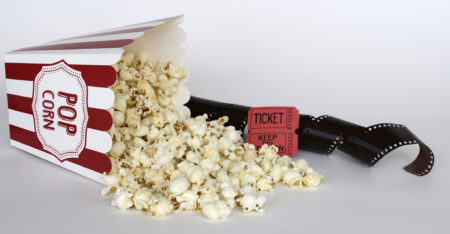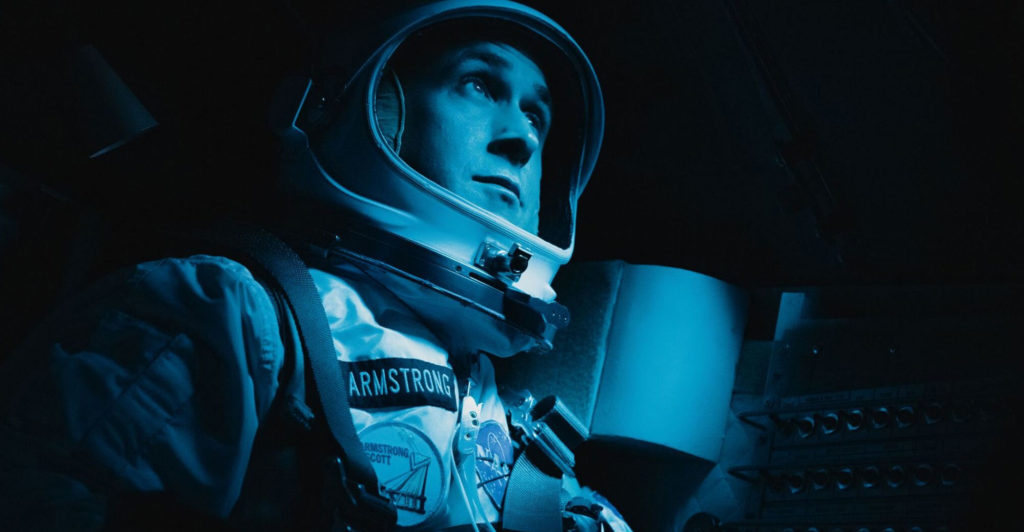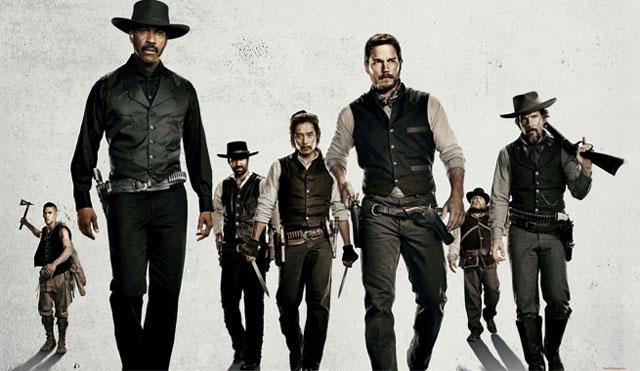
Widely dismissed upon release as a second-rate remake of Akira Kurosawa’s Seven Samurai, The Magnificent Seven (1960) has been elevated over the years into a much-loved classic. It’s unlikely that time will do the same for The Magnificent Seven (2016), but the update does a good job of providing two hours of rollicking entertainment. Heck, it’s better than the direct sequels the 1960 film inspired.
Director Antoine Fuqua nods at the present by making his Seven more culturally diverse than the original bunch, though he embraces the rootin’, tootin’, shootin’ clichés of the old West without irony for the most part. The Magnificent Seven is a straightforward story of valour, sacrifice and revenge, unadorned by the revisionist subtext and genre-muddling of recent Westerns like The Hateful Eight, Bone Tomahawk and Slow West.
The Magnificent Seven closely follows the template laid down by the John Sturges original — down to cribbing some of its dialogue and playing out with Elmer Bernstein’s rousing theme over the credits — with only a few updates. Denzel Washington stars as a mysterious black-clad gunslinger who recruits a ragtag band of desperados, mercenaries and outcasts to protect a band of villagers from a ruthless businessman (Peter Sarsgaard) who wants to drive them off their land.
The original Seven’s enduring appeal largely comes down to the chemistry and charisma of its ensemble cast. Yul Brynner, the leader of the gang, was already an icon at the time of its release and Charles Bronson, Robert Vaughn, James Coburn and Steven McQueen were on the cusp of stardom. (The two dudes that always come up as the answer to a pub quiz trivia question were Brad Dexter and Horst Buchholz.)
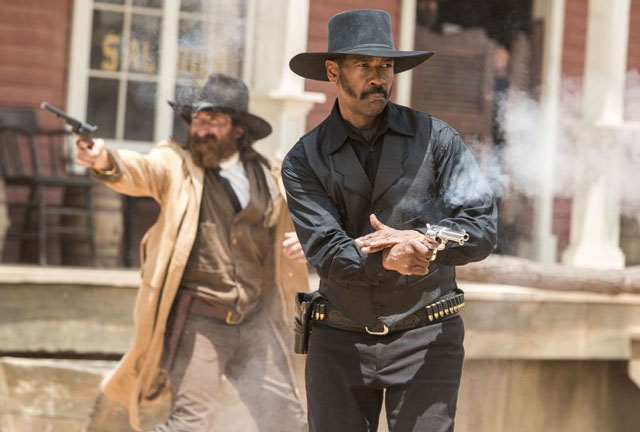
The 2016 film doesn’t feel like the quite same rare alignment of the stars, but most of the cast acquits itself well. Washington anchors the film as honourable and laconic badass Chisolm, reprising much the same role he has played countless times in films like Man on Fire and The Equalizer. He is solid, even if he is phoning it in. Chris Pratt’s Josh Faraday — a similar, smart-mouth persona to Starlord in Guardians of the Galaxy — is a bit out of place in the old West.
More interesting is Ethan Hawke as a frazzled civil war vet with post-traumatic stress and the rather cool name of Goodnight Robicheaux; Vincent D’Onofrio, so superb in Netflix’s Daredevil, fleshes out his thinly written character into a force of nature — a mountain man with a reedy voice and the presence of a grizzly bear.
Rounding out the seven are three one-note characters: Byung-hun Lee as a knife-wielding assassin, Manuel Garcia-Rulfo as a Mexican outlaw, and Martin Sensmeier as a Comanche warrior. They face off against Sarsgaard’s robber baron, a sneering, sadistic, vacuum-eyed snake named Bartholomew Bogue, who is at once more evil and less compelling than Eli Wallach as the original’s villain. Wallach’s character, a simple gang leader rather than an omnipotent big bad capitalist, at least had a sense of humour.
Fuqua starts his film off with some bracing violence, but he lets a long fuse burn before the explosive climax. Much of the film focuses on the recruitment of the Seven and their efforts to prepare the townsfolk for the final reckoning with Bogue and his army. But The Magnificent Seven saves most of its gunpowder for the terrific action of the climactic showdown in the last act.
Fuqua, who has shown that he can stage great set pieces in films like Training Day and The Equalizer, unleashes a series of stunts and gunfights that are visceral and exciting. Though the violence is toned down for a PG rating – it’s nowhere near as wincingly brutal as The Equalizer – The Magnificent Seven’s bullets, fists and explosions feel like they have real physical force behind them.
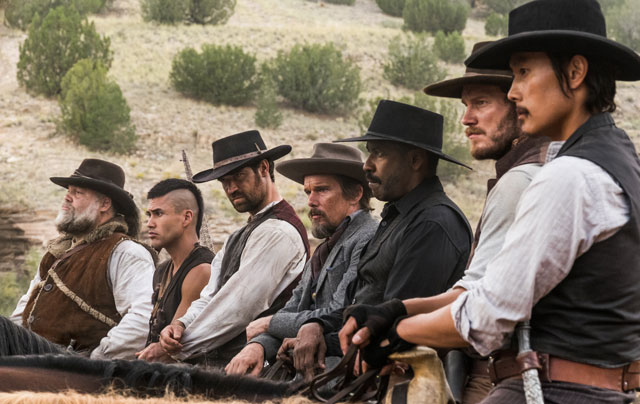
The original Magnificent Seven at once looked back the romanticised view of frontier life in 1950s Westerns and forward to the darker vision of filmmakers like Sergio Leone and Sam Peckinpah. Fuqua plays off a similar mixture of brooding violence and frisky playfulness, with his film putting high dramatic stakes on the table.
When the smoke clears, there is victory and martyrdom. There are some character arcs that fall flat, some moments of tragedy and redemption that feel unearned, but The Magnificent Seven satisfies for the most part.
Though it often crosses the line between weatherworn archetype and threadbare cliché, I enjoyed The Magnificent Seven’s familiar Western tropes like gunfights at high noon and horse hooves thundering down the plains. It’s a remake that respects rather than defiles its source, a callback to old-fashioned filmmaking that feels curiously welcome after this year’s dreary crop of superhero and fantasy blockbusters. — © 2016 NewsCentral Media


